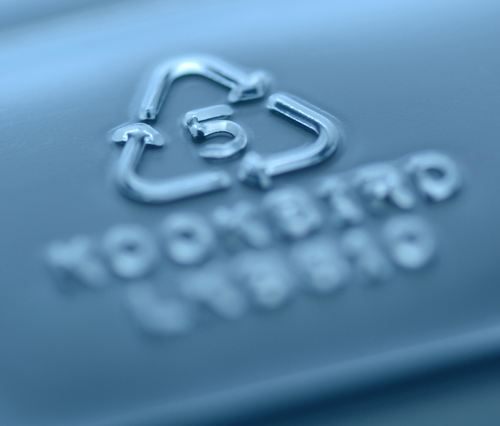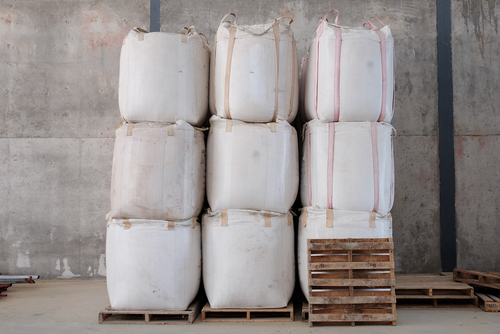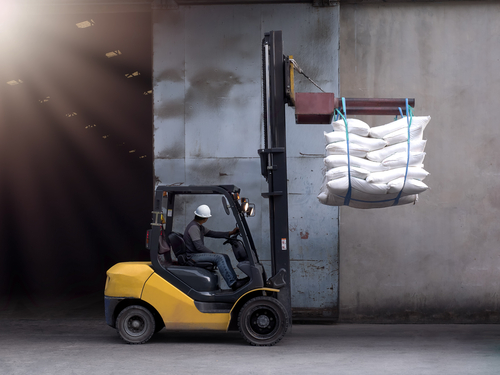
If you have a stockpile of old super sack bags, otherwise known as flexible intermediate bulk containers (FIBC), then you should know about how to recycle them. Unlike standard bulk bags, super sack bags are made of durable, woven polypropylene fabric—often virgin polypropylene—which is much easier to recycle than the older PVC rubber bags that were once a standard in industrial applications. You can recycle your FIBC bags through designated programs or sell them so they get plenty of use well into the future.
According to the United States Environmental Protection Agency (EPA), of the 258 million tons of materials of waste generated, over 89 million tons were recycled and composted, with 13 percent of that coming from plastics. Recycling plastic—and polypropylene in particular—is extremely beneficial to the environment. It reduces the consumption of non-renewable resources like oil and gas, and when plastic products are made from plastic products, manufacturers see an 88 percent reduction in energy use.
Using a heavy-duty bulk bag in places along the supply chain where you’d typically use a non-recyclable container—such as within your packaging solutions department or when used for palletizing bulk material with your forklift—can help make your company more eco-friendly while simultaneously lowering your costs. And, if you’re not totally particular about the visual condition of your super sack bags, then you can benefit from buying your FIBC bags used.
Recycling Programs
The Flexible Intermediate Bulk Container Association (FIBCA) strongly recommends, whenever possible, recycling end-user bulk bags at the end of their life cycle. The association has designated several guidelines to ensure that bulk-bag recycling and refurbishing is done in a manner that’s safe, effective and easy for recyclers. Through this program, FIBC bags go through a “closed loop” system to ensure that bags are reconditioned and reused before they must be ultimately completely recycled.
If you intend to reuse your bulk bags after a bit of reconditioning, it’s important to follow the FIBC’s guidelines for how to refurbish these bags. Companies must fully clean all foreign matter from the bag’s interior and replace the web tie or wire tie, labels, filler cord and lift loops. They should then extensively test each FIBC bag by filling it or using it with bulk bag unloading systems to ensure that it’s in reusable shape.
There are a number of companies throughout the United States and North America that collect, handle, convert and refurbish FIBC bags, so if you don’t feel comfortable performing these kinds of evaluations in your facility, you don’t have to. Recycled FIBC bags are generally classified into grades, from A to C, so that you can easily identify which ones are best-suited for your needs when buying used.
Sell Used FIBC Bags
You don’t necessarily have to go through a super sack recycling program to make your jumbo bag use eco-friendly. You can help the environment by ensuring that every single super sack container gets its fill—so to speak—of use when you buy or sell FIBC bags, ensuring that they have the longest possible lifespan and fewer new FIBC bags have to be produced. In many scenarios, a used big bag will be in like-new condition but will ring up for a fraction of the cost of a brand-new one.
At Container Exchanger, we have one of the best selections of used FIBC bags around. It doesn’t matter your unique application, quantity requirement or budget. We can help you find a style that suits your specific needs. We offer economical, gently used bulk bags with all the bells and whistles, including spout bottom, spout top, food-grade, anti-static and more heavy-duty bulk bags that you can use again and again in your warehouse, distribution center, manufacturing facility or anywhere else you need to store or ship bulk material.
The Key Takeaway
As you can tell, recycling your FIBC bags—whether by sending them to be refurbished, reselling or recycling them once they’ve come to their end of life—is an excellent way to ensure that you’re running a green operation and keeping your facility lean at the same time. Container Exchanger is happy to help you find the ideal bulk bag, super sack, FIBC bag or one-ton bag for a great price!

